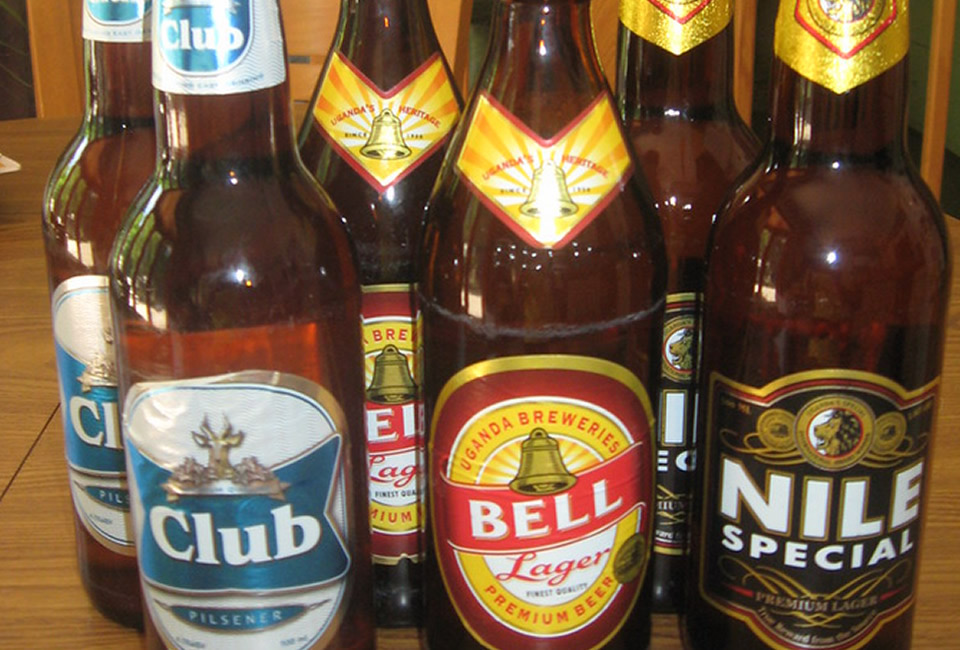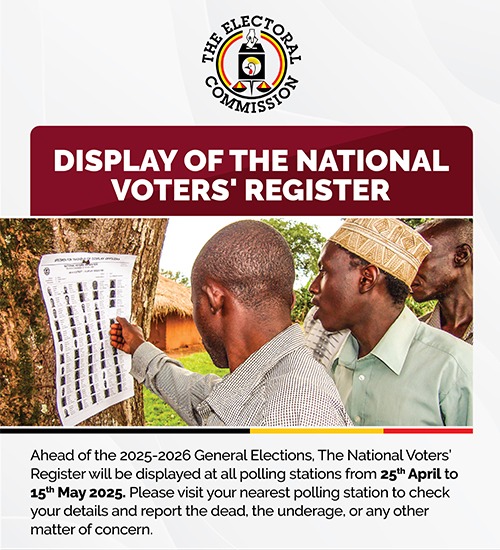By DIANA BUNTAJOVA
JAMES OKELLO
KAMPALA/LONDON: Drinking a lot of alcohol can cause seven types of cancer, a scientific study has established.
Cancer describes a condition during which the cells in parts of your body start growing and reproducing uncontrollably.
Fortunately, easy lifestyle tweaks can make you less likely to develop cancer. While doing the opposite can in return boost your risk.
One drink that can cause as many as seven different cancers is alcohol, according to Cancer Research UK.

A waiter serves an assortement of drinks to a client ( Daily Monitor Photo)
The seven cancers which can be triggered by drinking include: Bowel cancer, Breast cancer, Mouth cancer, Liver cancer and some types of throat cancer such as oesophagus, larynx, and pharynx.
According to the Uganda Cancer Institute, genetic changes that cause cancer can be inherited from our parents or can also arise during a person’s lifetime as a result of errors that occur as cells divide or because of damage to DNA caused by certain environmental exposures.
“Cancer-causing environmental exposures include substances, such as the chemicals in tobacco smoke, and radiation-like exposure to excess ultraviolet rays from the sun (especially among the albinos),” reveals a Uganda Cancer Institute’s information pack.

In a 2017 cancer information package compiled for the Uganda Cancer Institute by the Comprehensive Community Cancer Programme (CCCP), frequent consumption of alcohol can increase one’s risk for cancer.
“The more alcohol you consume, the greater the risk. Therefore, do not drink alcohol or avoid excess amounts of alcohol intake. Alcohol is produced by the fermentation of sugar and starch in the presence of yeast,” wrote the CCCP team.
This CCCP team was composed of top consultants who included Alfred Jatho, a Health Educator & Community Cancer Outreach Coordinator, Dr. Noleb Mugisha, Head CCCP, Dr. George Holoya, Medical Officer and Public Health Specialist, Dr. James Kafeero, Medical Officer and Public Health Specialist, and Yusuf Siraji, a Health Educator. They were assisted by Dr. Fred Okuku, a Medical Oncologist, Dr. Nixon Niyonzima, Head training and Research, Dr. Carol Nakisige, a Gynaecologist and Dr. Henry Dungu, a Consultant Oncologist.
“The more alcohol a person drinks—particularly the more alcohol a person drinks regularly over time—the higher his or her risk of developing an alcohol-associated cancer,” they wrote.
How does alcohol increase the risk of cancer?
According to CCCP, there are many ways that alcohol may increase the risk of developing cancer, these include:
Breaking down ethanol in alcoholic drinks to acetaldehyde, which is a toxic chemical and a probable human carcinogen; acetaldehyde can damage both DNA (the genetic material that makes up genes) and proteins.
Alcoholic beverages may also contain a variety of carcinogenic contaminants that are introduced during fermentation and production, such as nitrosamines, asbestos fibers, phenols, and hydrocarbons.
So what amount of alcohol can a person drink safely?
The amount of alcohol a person can drink safely depends on the types of alcohol, health status and sex of the person, for example, the American National institute of health (NIH) recommends that a man should not drink more than two drinks (serving size) per day and women not more than one drink per day- this is only if you are not pregnant, lactating, have alcohol dependencies, diseases or are taking medications.
From gin to wine and cocktails to shots, it doesn’t matter what you drink as alcohol itself is the problem. The charity explains that alcohol drinkers are more likely to get cancer compared to those who don’t enjoy alcoholic drinks.
What’s worse, even a small amount of the popular drink can hike your risk.
According to the 2004 Global Status Report on alcohol, Uganda had the highest annual consumption of alcohol in the world, with 19.47 l of pure alcohol being consumed per capita among persons aged 15 years and above; in addition to an unrecorded consumption estimated at 10.7 l of pure alcohol annually per adult.
For more information on this, visit; https://www.express.co.uk/life-style/health/1571537/cancer-cause-alcohol-increases-cancer-risk-symptoms


















